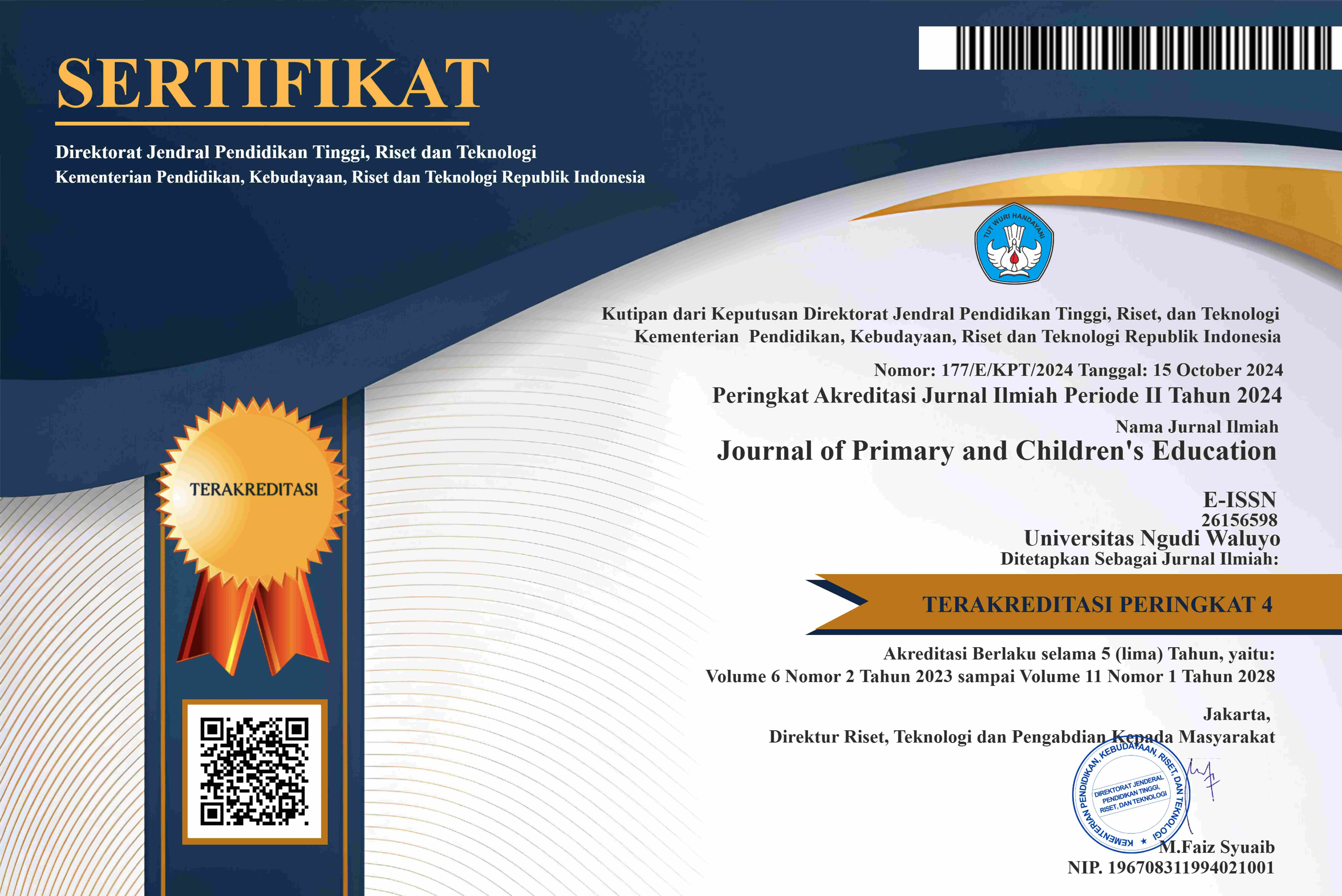Studi Komparasi Keefektifan Model PBL Dan AIR Terhadap Kemampuan Berpikir Kritis Siswa
DOI:
https://doi.org/10.35473/jnctt.v6i1.2024Abstract
This study aims to prove whether there is a difference in the effectiveness of the Problem Based Learning (PBL) and Auditory, Intellectually and Repetition (AIR) models on students' critical thinking skills. This research is motivated by a problem in the education unit that many teachers have not used the PBL model according to Permendikbud No.22 of 2016. In learning theory, the PBL model can improve students' ability to think critically and solve problems in everyday life. The AIR model can improve students' ability to solve problems encountered in learning by listening to and repeating the material they have learned. The research used the Pretest-Postest Comparations Group Design method. The hypothesis test uses the Paired Sample Test Statistical Test, Independent t- Test and N-Gain Test. Statistical test with Paired level of significance for both class A and class B is 0.000 so that the two classes have no difference in students' critical thinking skills. In the t-Independent test, the significance level in class A and class B is 0.283, because 0.283 > 0.05, the two models are equally effective in improving students' critical thinking skills. With the N-Gain test in class A (PBL), the N-gain score for students' critical thinking skills was 0.7346 and the N-Gain Score in class B (AIR) was 0.4918. Based on the hypothesis test it was conclusively proven that class A using the PBL model was more effective than class B using the AIR model with a ratio of 0.7346 to 0.4918.
Penelitian ini bertujuan membuktikan ada tidaknya perbedaan keefektifan antara model Problem Based Learning (PBL) dan Auditory, Intelectually and Repetition (AIR) terhadap kemampuan berpikir kritis siswa. Penelitian ini dilatar belakangi karena masalah di satuan pendidikan banyak guru yang belum menggunakan model PBL sesuai Permendikbud No.22 Tahun 2016. Dalam teori belajar model PBL dapat meningkatkan kemampuan siswa untuk berpikir kritis dan memecahkan masalah dalam kehidupan sehari-hari. Model AIR dapat meningkatkan kemampuan siswa memecahkan masalah yang dihadapi dalam belajar dengan proses mendengar dan mengulang kembali materi yang dipelajarinya. Penelitian menggunakan metode Pretest-Postest Comparations Group Design. Uji Hipotesis menggunakan Uji Statistik Paired Sample Test, Uji t-Independent dan Uji N-Gain. Uji statistik dengan Paired tingkat signifikansinya baik kelas A maupun kelas B sebesar 0,000 sehingga kedua kelas tidak terdapat perbedaan kemampuan berpikir kritis siswa. Pada Uji t-Independent tingkat signifikansinya di kelas A maupun kelas B sebesar 0,283 , karena 0,283 > 0,05 maka kedua model juga dikatagorikan sama-sama efektif untuk meningkatkan kemampuan berpikir kritis siswa. Dengan uji N-Gain di kelas A (PBL), N-Gain skor kemampuan berpikir kritis siswa sebesar 0,7346 dan N-Gain Skor di kelas B (AIR) sebesar 0,4918. Berdasarkan uji hipotesis tersebut terbukti secara meyakinkan bahwa kelas A dengan penggunaan model PBL lebih efektif dibanding kelas B yang menggunakan model AIR dengan perbandingan sebesar 0,7346 berbanding 0,4918.
References
Daniel Muijs & David Reynolds. (2008). Effective Teaching,Teori dan Aplikasi. Yogyakarta: Pustaka Pelajar
Saillis, Edward. (2012). Total Quality Managemet in Education,manajemen Mutu Pendidikan. Yogyakarta: IRCiSoD.
Asmani, Jamal Ma’mur. (2012). Tips Efektif Supervisi Pendidikan Sekolah Yogyakarta: DIVA Press.
Trianto. (2007). Model-Model Pembelajaran Inovatif Berorientasi Konstruktivistik. Jakarta: Prestasi Pustaka.
Suyatno. (2009). Menjelajah Pembelajaran Inovatif. Sidoarjo: Masmedia Buana Pusaka.
Undang-undang Nomor 20 Tahun 2003 Tentang Sistem Pendidikan Nasional
Permendikbud Nomor 22 Tahun 2016 tentang Standar Proses
Murti, B. (2009). Berpikir Kritis (Critical Thinking). http://fk.uns.ac.id/static/file/criticalthinking.pdf
Astika, I. K. U., Suma, K., & Suastra, I. W.M. (2013). Pengaruh Model pembelajaran dengan Masalah (Problem Based Learning) terhadap Sikap Ilmiah dan Ketrampilan Berpikir Kritis. Jurnal Penelitian Pascasarjana Undiksha, 3 (1).
Kemendikbud. (2018). Peringkat dan Capaian PISA Indonesia Mengalami Peningkatan. http://www.kemendikbud.go.id/main/blog/2018/12/peringkat-dan- capaian -pisa-indonesia-mengalami-peningkatan.
Winataputra, Udin S,dkk. (2008). Teori Belajar dan Pembelajaran. Jakarta: Penerbit Universitas Terbuka.
Gunarsa, Singgih, D. (2012). Dasar & Teori Perkembangan Anak. Jakarta : Penerbit Libri.
Sudjana. (2005). Metoda Statistika. Bandung: PT Tarsito Bandung.
Sugiyono. (2007). Statistika Untuk Penelitian. Bandung: PT Alfabeta.
https://www.tripven.com/problem-based-learning/
http://www.jejakpendidikan.com/2017/03/model-pembelajaran-auditory.html
https://bertema.com/sintaks-metode-pembelajaran-air-auditory-intellectualy-repetition
https://www.antaranews.com/berita/1190780/menanti-peringkat-pisa-indonesia-2018
Downloads
Published
How to Cite
Issue
Section
License
Copyright notice:
- Authors retain copyright and grant the journal right of first publication with the work simultaneously licensed under Creative Commons Attribution License that allows others to share the work with an acknowledgement of the work's authorship and initial publication in this journal.
- Authors are able to enter into separate, additional contractual arrangements for the non-exclusive distribution of the journal's published version of the work (e.g., post it to an institutional repository or publish it in a book), with an acknowledgement of its initial publication in this journal.
- Authors are permitted and encouraged to post their work online (e.g., in institutional repositories or on their website) prior to and during the submission process, as it can lead to productive exchanges, as well as earlier and greater citation of published work (The Effect of Open Access)







